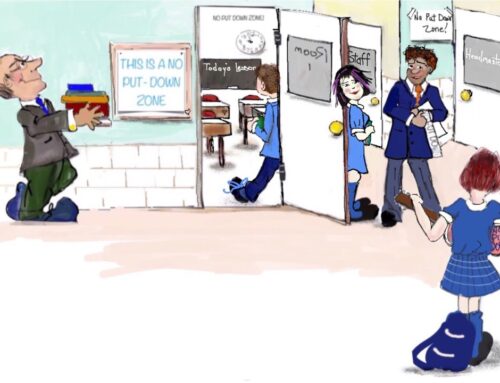The Problem: SOILING (encopresis) AND SMEARING (scatolia)
The Recipe: AGE APPROPRIATE SELF-CARE
It is easy to position soiling as deliberate, but jumping to conclusions could make an already sensitive situation worse. Soiling caused by incontinence may be very distressing for the child, as the resultant smell is likely to have negative social repercussions, avoidance or bullying as well as anxiety. It can also cause frustration and embarrassment for the family. When accompanied by smearing faeces it may have different connotations and meaning. This is recognised as a difficult behaviour to eradicate so do not expect any quick fixes.
What you need to know
Onset: Is this primary encopresis (continuous soiling – the child has never been toilet-trained) or secondary (started afterwards, possibly in conjunction with stress or trauma)?
Family: What has the family done so far? Have they sought medical advice?
Context: Are there stressors that exacerbate this behaviour or times when it diminishes?
Other concerns: Is this part of a pattern of other behaviours of concern? May this be linked to overall developmental delay or autism?
Emotions: What feelings are apparent in these behaviours? They may be linked with anger, a need for control, frustration, anxiety, fear, curiosity, or even comfort.
Today in the classroom
Soiling: As soon as the behaviour becomes apparent, quietly remove the child to the toileting areas or sick bay and organise clearing up with minimum fuss and talking. There is some evidence that a strong emotional reaction can exacerbate the problem. Reassure the child that this happens for other children from time to time. Once the child is considered capable involve them in self-care as much as possible. This should not be seen as punitive but a sign of independence and giving them some control. You will need to clarify at a whole-school level who is responsible for overseeing this.
Smearing: This is harder for adults to manage but needs a similar approach to soiling.
School nurses are well placed to show concern and engage the child in quiet non-judgmental conversations – open-ended questions such as ‘are you OK – is there anything you want to talk about?’ For those schools who do not have school nurses, teaching assistants may need some training / support if they are required to deal with this.
Engage other children in activities to divert attention.
This behaviour can engender feelings of revulsion that are conveyed to the child who may already be struggling. Staying calm and kind is not always easy. A shared approach in school may help.
Longer term change
Establish clear toileting routines to minimise ‘accidents’. Not all children will have bodies that evacuate at regular times but it is worth trying. Perhaps the child can choose a soap for their own use.
Teach and encourage self-management as appropriate.
You need to know where the child is starting from: awareness of need, level of control, signalling need, motivation etc. The school nurse is an appropriate professional to check this with the child and family.
Have sufficient spare clothing.
Curriculum input on bodily functions, signals, health and hygiene.
Work closely with parents/carers to develop a non-punitive approach.
Give the pupil opportunities for agency where they can take responsibility and assert control.
Provide alternative play materials – such as soft clay perfumed with lavender oil.
Be aware of any potential or actual verbal bullying from peers and take preventative action.
Provide opportunities for talking/listening in a safe space.
Curriculum input on personal autonomy and keeping safe.
Monitor for other behaviours of concern.
NB: Many young children have occasional ‘accidents’, mostly wetting their pants because they don’t get to the toilet in time. This does need investigation if it becomes frequent, as it can be a sign of stress and anxiety.








Leave A Comment
You must be logged in to post a comment.